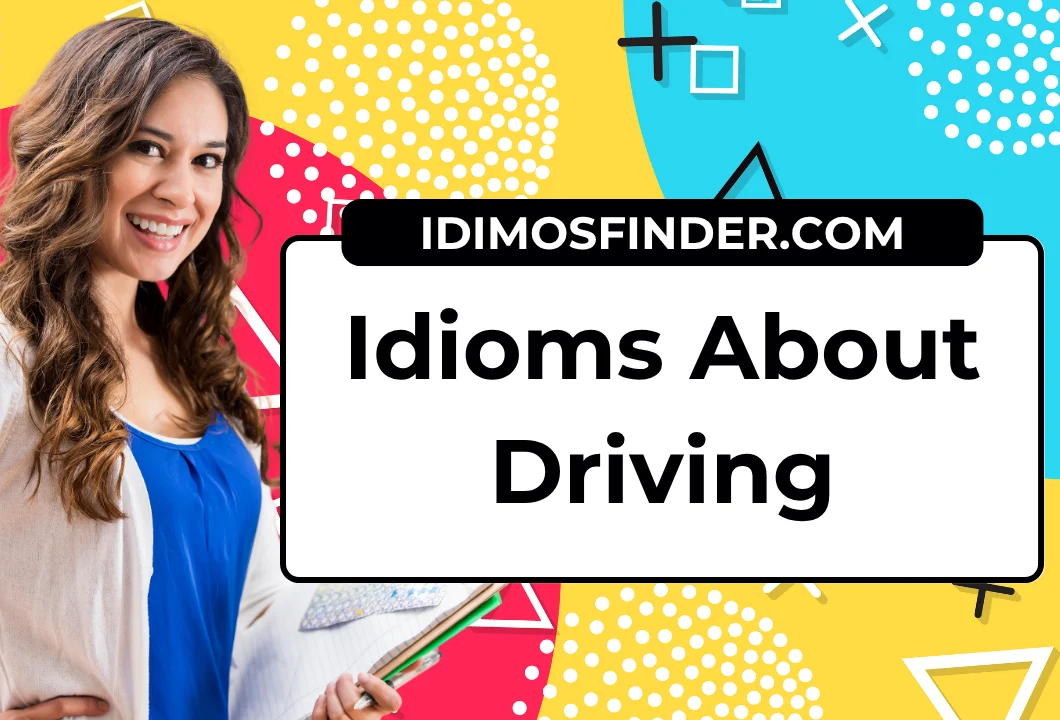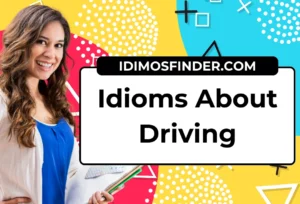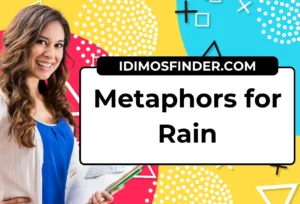Driving is more than just getting from point A to point B — it’s a journey that shapes our daily lives, whether we’re heading to school, work, or out for a bit of fun. Our ability to drive represents skill, freedom to travel, and the urge to explore. It’s no surprise that the road inspires countless idioms, phrases, and expressions we use to describe situations, people, and life itself — often without even realizing it.
As someone who’s spent years behind the wheel — and just as many helping others learn English — I’ve found these driving idioms to be some of the most useful tools for everyday conversation. They add color, warmth, and relatable imagery that help us connect with others.
Below, you’ll find 25 popular driving idioms, each explained clearly, with examples and alternative ways to say the same thing. Buckle up — let’s hit the road!
1. In the driver’s seat
Meaning: To be in control of a situation.
In a sentence: After her promotion, Maria was finally in the driver’s seat at work.
Best use: Use this when talking about someone who has power, influence, or authority.
Other ways to say: Take charge, call the shots, run the show.
2. Put the pedal to the metal
Meaning: To go as fast as possible.
In a sentence: When the deadline got closer, the team put the pedal to the metal.
Best use: When someone needs to speed up or work hard to meet a goal.
Other ways to say: Step on it, full speed ahead, move quickly.
3. Backseat driver
Meaning: A person giving unwanted advice.
In a sentence: I love my dad, but he’s such a backseat driver.
Best use: When someone interferes or annoys with constant instructions.
Other ways to say: Meddler, know-it-all, micromanager.
4. Hit the road
Meaning: To leave or start a journey.
In a sentence: Let’s hit the road early to avoid traffic.
Best use: Use this when starting a trip or moving on.
Other ways to say: Get going, set off, take off.
5. Bump in the road
Meaning: A small problem or setback.
In a sentence: We hit a bump in the road, but we’ll fix it.
Best use: When talking about minor issues that don’t stop progress.
Other ways to say: Hiccup, snag, glitch.
6. At a crossroads
Meaning: Facing an important decision.
In a sentence: After college, I was at a crossroads in my life.
Best use: Talking about big life choices.
Other ways to say: Turning point, fork in the road, pivotal moment.
7. Down the road
Meaning: In the future.
In a sentence: I see myself moving abroad down the road.
Best use: Referring to plans or possibilities.
Other ways to say: Later on, eventually, someday.
8. Drive someone nuts
Meaning: To annoy or irritate someone.
In a sentence: Loud chewing drives me nuts.
Best use: Use when talking about habits or people who get on your nerves.
Other ways to say: Drive confused, get on one’s nerves, irritate.
9. Fast lane
Meaning: A busy, exciting, often risky lifestyle.
In a sentence: He loves living in the fast lane.
Best use: When describing high-energy living.
Other ways to say: High life, hustle, rat race.
10. Hit the brakes
Meaning: To slow down or stop suddenly.
In a sentence: We need to hit the brakes on spending.
Best use: Talking about pausing or stopping an activity.
Other ways to say: Put the brakes on, pull back, slow down.
11. Go the extra mile
Meaning: To make extra effort.
In a sentence: She always goes the extra mile for her clients.
Best use: Praising effort and dedication.
Other ways to say: Do more, give 110%, exceed expectations.
12. Take the wheel
Meaning: To take control or responsibility.
In a sentence: When my manager was sick, I had to take the wheel.
Best use: When stepping up to lead.
Other ways to say: Take charge, take over, lead the way.
13. Steer clear
Meaning: To avoid something or someone.
In a sentence: I steer clear of drama at work.
Best use: Talking about avoiding trouble.
Other ways to say: Stay away, avoid, dodge.
14. Road to nowhere
Meaning: A pointless effort.
In a sentence: Arguing with him is a road to nowhere.
Best use: When something leads to no results.
Other ways to say: Dead end, waste of time, futile effort.
15. Shift gears
Meaning: To change focus or direction.
In a sentence: We’ll have to shift gears if this plan fails.
Best use: Talking about changing strategy.
Other ways to say: Pivot, switch, adapt.
16. Run out of gas
Meaning: To lose energy or motivation.
In a sentence: Halfway through the project, we ran out of gas.
Best use: Describing burnout or fatigue.
Other ways to say: Lose steam, burn out, tire out.
17. Cross that bridge when you come to it
Meaning: Deal with a problem if it happens.
In a sentence: We’ll cross that bridge when we come to it.
Best use: Reassuring someone not to worry too soon.
Other ways to say: Don’t worry now, deal with it later.
18. Dead end
Meaning: No possible progress.
In a sentence: This idea is a dead end.
Best use: Talking about unworkable solutions.
Other ways to say: Blocked path, no way forward, standstill.
19. Around the bend
Meaning: Going confused or very close by.
In a sentence: These deadlines are driving me around the bend.
Best use: Talking about stress or mental strain.
Other ways to say: Losing it, going nuts, nearby (context).
20. Buckle up
Meaning: Get ready for something difficult or exciting.
In a sentence: Buckle up — it’s going to be a wild ride.
Best use: Before challenges or surprises.
Other ways to say: Brace yourself, get ready, prepare.
21. Hit the wall
Meaning: To reach a limit.
In a sentence: I hit the wall after working 12 hours straight.
Best use: When someone is exhausted or blocked.
Other ways to say: Burn out, max out, hit a barrier.
22. Pump the brakes
Meaning: Slow down progress.
In a sentence: Let’s pump the brakes and think this through.
Best use: Use when advising caution.
Other ways to say: Slow down, hold up, pause.
23. Cut someone off
Meaning: Interrupt or block.
In a sentence: He cut me off in the middle of my story.
Best use: Talking about interruptions or driving actions.
Other ways to say: Interrupt, butt in, block.
24. In the fast lane
Meaning: Living quickly, with excitement and risk.
In a sentence: They’ve been in the fast lane since college.
Best use: Describing a busy or risky life.
Other ways to say: High-speed life, hectic pace.
25. Drive-by
Meaning: Something done quickly, sometimes without care.
In a sentence: His feedback felt like a drive-by comment.
Best use: Talking about quick, casual actions or comments.
Other ways to say: Quick hit, offhand, passing.
FAQs
1. Why do we use driving idioms in daily life?
Driving idioms help us explain situations and feelings in vivid, relatable ways.
2. How can I learn idioms naturally?
Practice using them in conversation, read widely, and notice them in shows and songs.
3. Are driving idioms common in English?
Yes! They’re part of everyday English and make your speech more engaging.
4. Can idioms be used in professional emails?
Some can! Just choose ones that sound warm but clear.
5. Do these idioms work in other languages?
Many languages have similar metaphors about travel and roads — explore and compare!
Conclusion
Next time you’re heading to work, chatting with friends, or writing a heartfelt note, sprinkle in these driving idioms to add warmth and personality. They help you describe life’s twists, turns, and open roads with words that connect us all. As someone who’s taught idioms for years, I promise: the more you use them, the more natural they feel — like putting the pedal to the metal on your English journey.
If you spot any missing keywords from the list, let me know, and we’ll cross that bridge when we come to it. Safe travels — and happy learning!












